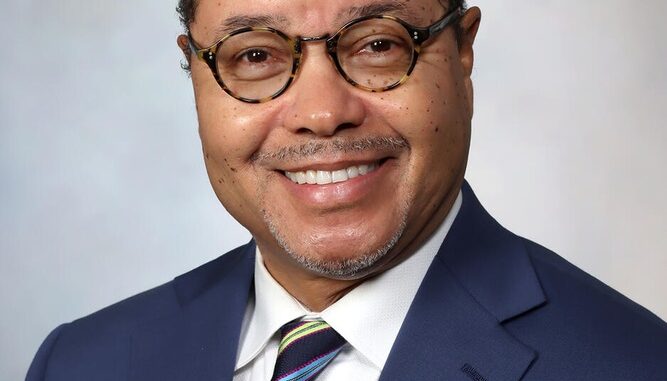
A Georgia native, Floyd Willis, M.D., was always drawn to the elder African Americans in social situations or programs at church. “It was always interesting to slow down and have conversations with them,” Dr. Willis says. “I have a deep respect for elderly African Americans that comes from witnessing what they have gone through over the generations. It drove me to want to care for these people. “It was that affinity to caring for older adults that made practicing family medicine an obvious choice.
After attending Yale University and Morehouse School of Medicine, Dr. Willis headed to Minnesota for a residency at Mayo Clinic. Then he returned to Georgia and opened a medical practice in a small town with about 8,000 residents. In 1992, Willis was drawn to join the new Family Medicine practice at Mayo Clinic in Florida. Four years later, he became chair of the Department of Family Medicine, becoming the first African American Chair of a Medical Department at Mayo Clinic in Florida.
In addition to treating his patients, Dr. Willis has been an advocate for raising awareness of health disparities that exist in underrepresented communities and addressing the mistrust that contributes to those disparities. He is passionate about ensuring that quality health care is available to underrepresented minorities, and those who are uninsured or underinsured. “I aim to help build a bridge between the disparate communities with institutions that have resources to address the disparities but lack the resources or knowledge to connect with them,” Dr. Willis says.
When Monica Albertie, administrator for the Office of Health Disparities Research, first met Dr. Willis during a job interview 15 years ago, she says she was inspired by his commitment to building trust in the Black Community. “I was so inspired by his vision for addressing health disparities and improving the health and wellness of particularly black populations in Jacksonville,” Albertie says. “His tireless efforts to engage directly with the community and provide education to thousands of Black senior citizens are what created much of the outreach and engagement that we have today.” Albertie credits Dr. Willis for the relationships that Mayo Clinic has cultivated with more than 150 Black churches, and the work he has done to improve the health of members of these churches, such as which launching a Health-Smart Church Center program, which provides education on nutrition and support for people to live healthier lives.
Dr. Willis also is passionate about ensuring that African Americans are properly represented in medical research, especially in the research into diseases such as Alzheimer’s. A patient’s diagnosis and treatment are often decided using baseline data, Dr. Willis says. “When a patient’s tests are compared to what is normal, the ‘normal’ needs to be another set of normal African Americans, not someone out of the race or culture,” Dr. Willis says, noting that race and culture can alter results on many tests. If no data exists for African Americans, it could lead to them receiving lower-quality care due to inaccurate diagnoses.
Envision yourself working for a global leader in an industry fueled by innovation and growth.
Mayo Clinic has opportunities for you. Join us at Florida’s No. 1 hospital by visiting mayoclinic.org.

Be the first to comment